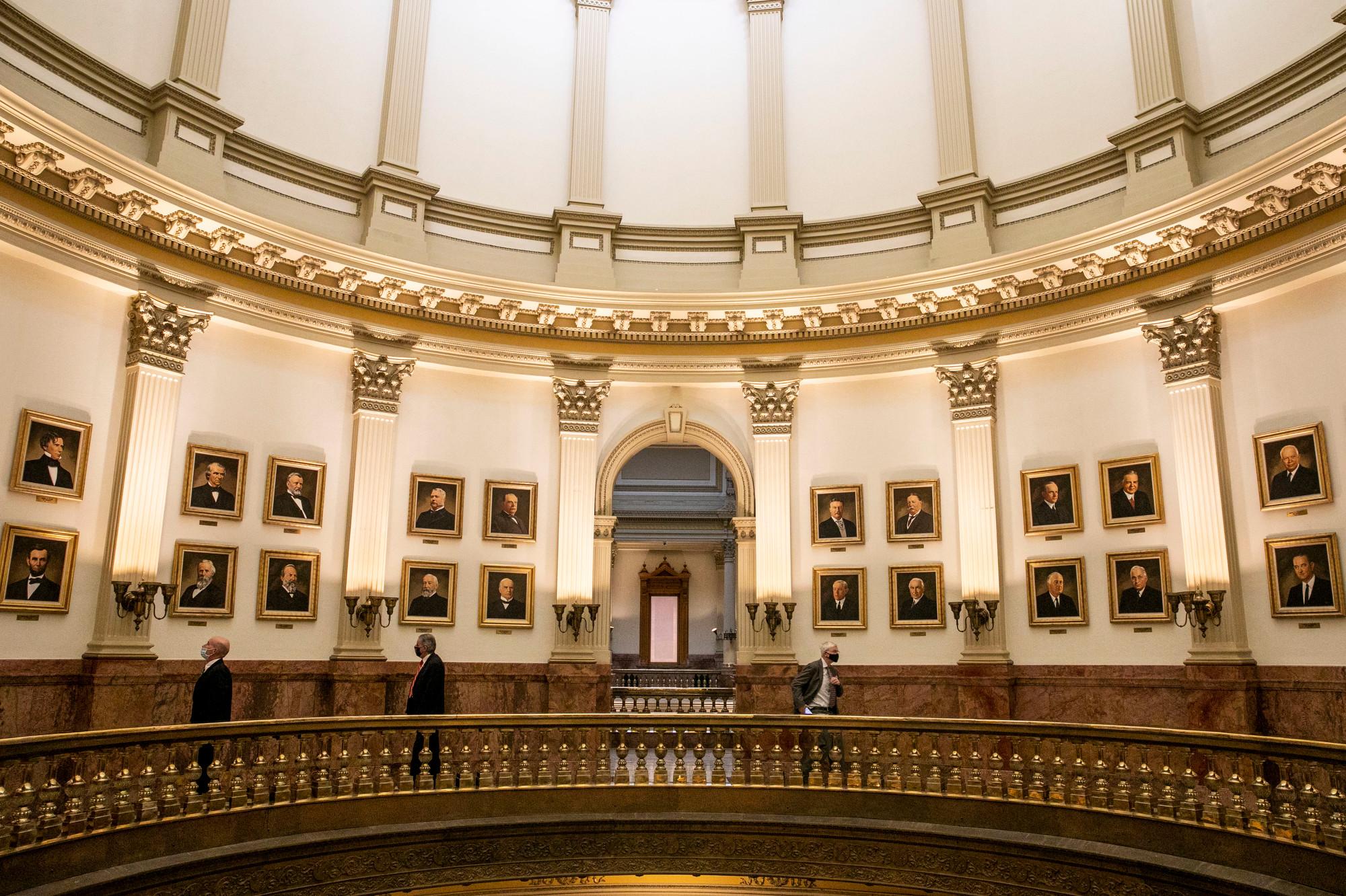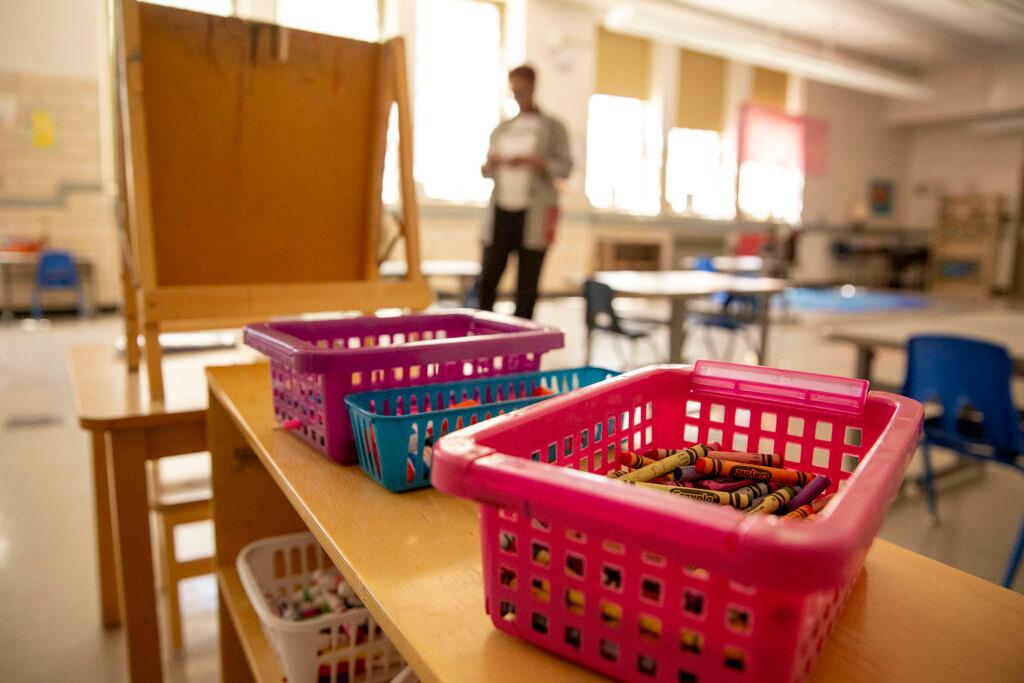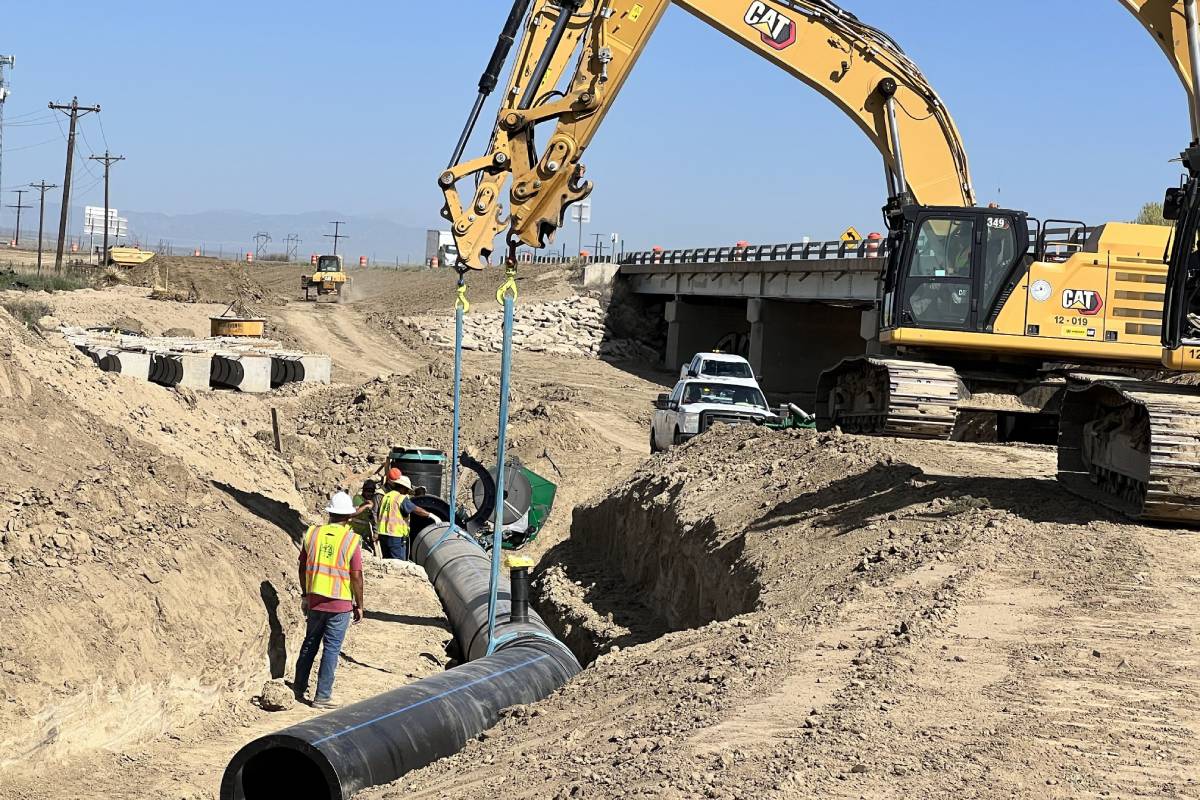
Colorado lawmakers will have a problem next legislative session that they’re not generally used to: More money to spend than they’ve ever had before.
Lawmakers in both parties say healthy state revenues and massive federal COVID relief funding add up to a once-in-a-generation opportunity to make key investments, but it also raises questions on how best to target the spending.
“Many legislators would have killed for the opportunity to have what we do right now,” said Democratic state Sen. Dominick Moreno of Commerce City.
He serves on the legislature’s Joint Budget Committee, which is charged with crafting the annual state budget. Added to the mix this next fiscal year is nearly $4 billion in one-time federal COVID relief. Moreno pressed the governor during a briefing earlier this month to share his philosophy on how to spend the money.
“Do we invest in a limited set of topics and make really, truly bold transformational change? Or — because there's such a need — do we spread those dollars out a little bit more to meet that need, but possibly sacrificing some of that transformational effect?” asked Moreno.
Polis told Moreno the state should be wary of taking on additional ongoing financial commitments because once the federal money is spent, the state would be on the hook to keep them going. And he would prefer to target the funding in a few key areas, rather than spreading it out.
“I think there is danger in diluting it so thin that it doesn't have the transformational change that the legislature, or us, would want,” Polis said. “And also people really won't understand where the money is going.”
The start of the budget negotiation process
For the last few months, task forces have been working on bipartisan legislation to spend the money in specific areas — economic recovery, workforce development, education, housing and behavioral health.
Democratic state Rep. Judy Amabile sits on the behavioral and mental health task force, which plans to issue a report with policy and funding ideas early next year. Her top goal is making sure there’s enough set aside to expand hospital beds for mental health and addiction treatment and recovery.
“We also want to make sure that people can receive treatment in their community. So we want to build sober living homes or add to our stock of sober living homes and other residential facilities, like residential drug treatment facilities for people who need that,” Amabile said.
Colorado’s constitution requires lawmakers to pass a balanced state budget before the fiscal year starts on July 1. Polis’ proposal is the starting point for negotiations but ultimately, writing and approving it falls to the legislature, a process that is mostly in the hands of the powerful Joint Budget Committee.
Colorado’s general fund, or the discretionary part of the state budget, is expected to be nearly $16 billion for the next fiscal year. Polis’ plan would increase the general fund by 8 percent, or $1 billion, while also setting aside 15 percent in reserves in case of an economic downturn.
Polis said he’s working with several objectives in mind: to help the state recover from the pandemic, reduce homelessness and address public safety concerns.
Statewide, crime rates have risen in the past year, and the governor told the budget committee that he wants to fund programs that reduce recidivism and keep people with behavioral health problems out of the justice system.
“We need to step up and do more to keep Colorado safe, to fight crime, to make sure that individuals and families can live in safe and thriving communities, and our budget proposes $113 million in public safety investments,” he told lawmakers when he formally presented his plan to them.
Polis said he would also prioritize ways to save people money, and reduce fees, such as covering the initial costs of the paid family leave program that voters approved in 2020 and trying to blunt the coming rise in unemployment insurance premiums for businesses.
“Many people are struggling with the cost of life, caregiving, rent, gas,” he said.
Democratic and Republican state lawmakers alike have issues with Polis' proposals
The Democratic chair of the Joint Budget Committee has already indicated one change she’d like to make to the governor’s plan: more money for higher education.
“Colorado has long lagged the nation in both K-12 and higher ed funding,” said state Rep. Julie McCluskie. “It is, I believe, a high priority for our state if we are going to get our workforce up to the level and expertise that we need in order to keep our economy thriving.”
Polis’ budget proposes an increase in K-12 spending, as well as about $182 million for Colorado’s colleges and universities to cover infrastructure, operating expenses and financial aid.
“I would just like to hear from you what went into your decision to provide the investment that you did?” McCluskie asked the governor at his presentation. “I'm concerned that it is not enough to meet the inflationary and core minimum costs of our institutions, and certainly we don't want to see additional costs flowing through to students.”
Polis agreed that colleges and universities are economic drivers and critical to preparing the workforce, but said that McCluskie wasn’t looking at the full picture of state and federal funding in his proposal.
Republican state Sen. Bob Rankin of Carbondale said he thinks there needs to be a greater effort to help rural communities participate in this large spending surge — by providing them with help to manage funds that may be coming their way and to apply for matching grants.
“The communities I represent don't have the capability to track all of this and maybe, more importantly, to manage those monies if they get distributed,” said Rankin.
He said he is pleased with parts of the governor’s plan.
“I like where we're headed with education. I think that the budget committee may want to go even further in funding K-12. I'm concerned (about) what's not there. I don't see an emphasis on fire management, or water. I think those are big deficits that we need to pay more attention to,” Rankin said.
The budget committee usually sends its spending plan to the full legislature in late spring.









